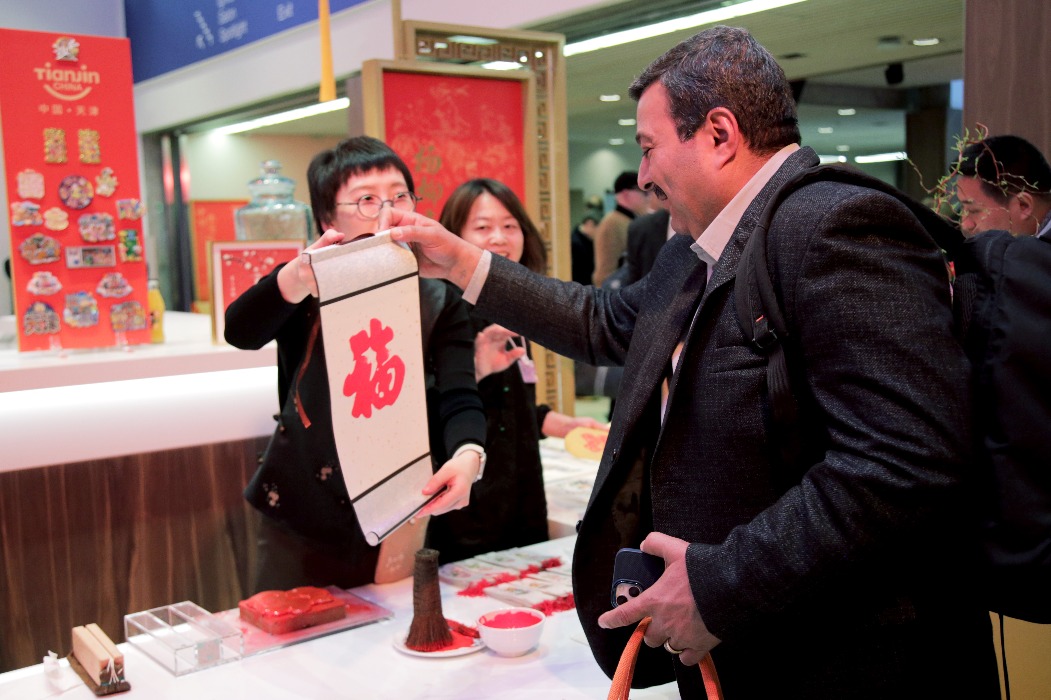Major plan aims to ensure stable A-share market
Pragmatic measures stepped up to restore investor confidence, analysts say


China has launched a multiyear plan to ensure a continuous inflow of additional long-term funds into the A-share market, with the aim of providing direct support for the steady performance of the world's second-largest stock market, officials said on Thursday.
Analysts said the measures, potentially pumping in around 1 trillion yuan ($137.2 billion) of medium- to long-term funding annually, indicate that policymakers are stepping up pragmatic measures to restore investor confidence, which is an immediate priority amid lukewarm domestic spending and lingering external uncertainties.
"Starting in 2025, large State-owned insurance companies will strive to invest 30 percent of their annual new premiums in the A-share market, which means at least hundreds of billions of yuan in new long-term funds for A shares annually," Wu Qing, chairman of the China Securities Regulatory Commission, said on Thursday.
Wu said at a news conference that mutual funds will also increase their holdings of free-float A shares by at least 10 percent each year over the coming three years, as specified by the implementation plan for promoting medium- and long-term capital entering the market.
The plan, unveiled on Wednesday by six central agencies including the CSRC, marks the latest step for policymakers to fulfill the top leadership's call for stabilizing the stock market.
Wu added that the second phase of a pilot program that facilitates the launching by insurers of long-term stock investment funds will be implemented in the first half of 2025, at a size of no less than 100 billion yuan.
The announcements caused the A-share market to jump, though it retreated later, with the benchmark Shanghai Composite Index up 0.51 percent to close on Thursday at 3,230.16 points.
Yang Haiping, a distinguished research fellow at the Beijing Wealth Management Industry Association, said that compared with some of the previous market stabilization measures, the new plan directly targets the funding side, making it more precise and likely to have an impact.
"It will bring in more real money, optimize the structure of investors, stabilize market expectations and play a key role in the long-term stable operation of the stock market," Yang said, adding that the A-share market might see an annual total of over 1 trillion yuan in additional long-term money inflow if the plan is well implemented.
The plan also extends the performance evaluation cycles for medium- and long-term funds. The performance of mutual funds, State-owned commercial insurance companies, the basic pension fund and annuity funds will be evaluated over a cycle of more than three years. The evaluation period for the national social security fund will be more than five years.
Wu, the CSRC chairman, said that "for the task of ushering in medium- to long-term capital, this is a very significant institutional breakthrough", as implementing long-term performance evaluation can smooth out the impact of short-lived market fluctuations on investment performance.
Wu added that the commission is also attracting long-term investments by encouraging listed companies' dividend payouts and share buybacks, with the dividend yield of the CSI 300 Index having reached 3 percent, which is significantly higher than the yield on 10-year Chinese treasury bonds.
In December and January, the total dividend distributions of A-share listed companies are expected to exceed 340 billion yuan, or 7.6 times the amount seen in the same period last year, official data showed.
Yang Delong, chief economist at First Seafront Fund, said that given the advantage of stock dividend yields, once the medium- to long-term funds enter the stock market as planned, other types of money such as residential deposits will follow and strengthen overall stock market performance.
"A rise in stock asset prices would boost consumption, driving a virtuous cycle for economic recovery," Yang said.
Xiao Yuanqi, vice-minister of the National Financial Regulatory Administration, said at the news conference that the administration will approve 50 billion yuan before the Spring Festival holiday, which starts on Tuesday, for the second-phase pilot program for insurers' stock investment funds, and will expand the program later.
"A swift implementation of the plan is poised to bring funds into the market quickly, preventing further market adjustments," said Feng Jianlin, chief economist at Beijing FOST Economic Consulting.
"Boosting investor confidence requires both immediate and systemic solutions," Feng added. "Fundamentally, it is necessary to improve expectations for China's medium- to long-term economic trajectory."




































